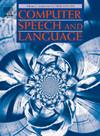Generative aspect-based sentiment analysis with a grid tagging matching auxiliary task
IF 3.4
3区 计算机科学
Q2 COMPUTER SCIENCE, ARTIFICIAL INTELLIGENCE
引用次数: 0
Abstract
Aspect-based sentiment analysis has gained significant attention in recent years. Particularly, the employment of generative models to address the Aspect-Category-Opinion-Sentiment (ACOS) quadruple extraction task has emerged as a prominent research focus. However, existing studies have not thoroughly explored the inherent connections among sentiment elements, which could potentially enhance the extraction capabilities of the model. To this end, we propose a novel Generative Model with a Grid Tagging Matching auxiliary task, dubbed as GM-GTM. First, to fully harness the logical interaction flourishing within sentiment elements, a newly output template is designed for generative extraction task, which conforms to causality and human intuition. Besides, we technically introduce a grid tagging matching auxiliary task. Specifically, a grid tagging matrix is designed, in which various tags are defined to represent different relationships among sentiment elements. In this way, a comprehensive understanding of the relationships among sentiment elements is obtained. Consequently, the model’s reasoning ability is enhanced, enabling it to make more informed inferences regarding new sentiment elements based on existing ones. Extensive experimental results on ACOS datasets demonstrated the superior performance of our model compared with existing state-of-the-art methods.
基于生成方面的情感分析与网格标注匹配辅助任务
基于方面的情感分析近年来得到了广泛的关注。特别是,使用生成模型来解决方面-类别-意见-情感(ACOS)四重提取任务已成为一个突出的研究热点。然而,现有的研究并没有深入探索情感元素之间的内在联系,这可能会提高模型的提取能力。为此,我们提出了一种带有网格标记匹配辅助任务的生成模型GM-GTM。首先,为了充分利用情感元素之间蓬勃发展的逻辑交互,为生成抽取任务设计了一个新的输出模板,该模板符合因果关系和人类直觉。此外,我们在技术上引入了网格标注匹配辅助任务。具体来说,设计了一个网格标记矩阵,在矩阵中定义了不同的标记来表示情感元素之间的不同关系。这样就可以对情感要素之间的关系有一个全面的了解。因此,模型的推理能力得到增强,使其能够根据现有的情感元素对新的情感元素做出更明智的推断。在ACOS数据集上的大量实验结果表明,与现有的最先进的方法相比,我们的模型具有优越的性能。
本文章由计算机程序翻译,如有差异,请以英文原文为准。
求助全文
约1分钟内获得全文
求助全文
来源期刊

Computer Speech and Language
工程技术-计算机:人工智能
CiteScore
11.30
自引率
4.70%
发文量
80
审稿时长
22.9 weeks
期刊介绍:
Computer Speech & Language publishes reports of original research related to the recognition, understanding, production, coding and mining of speech and language.
The speech and language sciences have a long history, but it is only relatively recently that large-scale implementation of and experimentation with complex models of speech and language processing has become feasible. Such research is often carried out somewhat separately by practitioners of artificial intelligence, computer science, electronic engineering, information retrieval, linguistics, phonetics, or psychology.
 求助内容:
求助内容: 应助结果提醒方式:
应助结果提醒方式:


